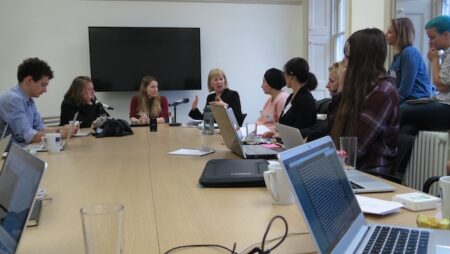Overview
The Everyday Sexism Project documents everyday examples of sexism reported by volunteer contributors from all around the world. It has reached 100,000 entries in 13+ languages within 3 years of its existence. The content of reports in various languages submitted to Everyday Sexism is a valuable source of crowdsourced information with great potential for feminist and gender studies. Hitherto there has been no large-scale computational study to analyse and map the content of the reports.
In this project we take a Natural Language Processing approach to analyse the content of reports in different languages. We will use topic-modelling techniques to extract the most evident topics and concepts related to sexism emerging from the reports, and to map the semantic relations between those topics within and across different languages. Sexism can materialise in different forms and shapes in different cultures and geographies. In this project we try to reveal the most common types of sexism and more importantly how they relate to each other and how they change from one language/country to another.
Funder
This project is funded by the John Fell Oxford University Press (OUP) Research Fund.






